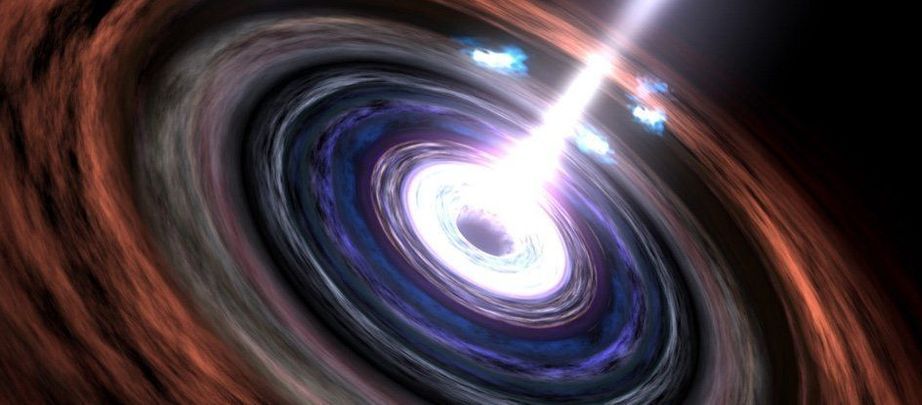First step towards medicine against new coronavirus (SARS-CoV-2)
Simulations suggest that a relatively simple laser technique could produce femtosecond magnetic-field pulses, which currently are only available at a few major lab facilities.
See more in Physics
Click to Expand.
A simple tractor beam can pull them away like a higgs boson tractor beam.
Too bad they are likely uninhabitable.
O.o circa 2019.
A scientist in Wisconsin has invented a bandage that uses an electrical field to speed up the time needed for a wound to heal. It could one day lead to treatments for baldness and obesity.
STEVE INSKEEP, HOST:
This next story reveals another of the wonders of electric power. A scientist in Wisconsin invented an electrical bandage, which speeds up the time it takes a wound to heal. This same approach, we’re told, may someday help overweight people shed pounds and bald people to grow new hair. Let’s plug in this story by NPR’s Joe Palca.
Google the word “jugaad,” and you’ll find a plethora of results, from simple dictionary definitions to advice that Western companies should adopt it as part of their practices. Jugaad — a colloquial Hindi, Bengali, and Punjab word — simply means “hack,” and captures the pervasive Indian spirit of finding a low-cost — and sometimes quite resourceful — solution to any problem. If this word doesn’t make one think of entrepreneurship, I don’t know what does.
Indeed, the small-scale biotech facilities scattered all across India, offering products with extremely high adoption rates such as microbial-based biofertilizers, capture the essence of jugaad. In India, finding solutions to the problems at hand is very natural, a way of life, essentially — and any solution, especially an economically sensible one, will be readily adopted. With such a pervasive ideal, India seems like the perfect setting for synthetic biology and biotech-based innovation.
Democratic presidential candidate Rep. Tulsi Gabbard  Tulsi GabbardLawmakers call for universal basic income amid coronavirus crisis Tulsi Gabbard calls for giving Americans K a month during coronavirus outbreak Biden consolidates majority support in new Hill/HarrisX 2020 poll MORE (D-Hawaii) called for introducing a universal basic income (UBI) of $1,000 a month until coronavirus “no longer presents a public health emergency.”
Tulsi GabbardLawmakers call for universal basic income amid coronavirus crisis Tulsi Gabbard calls for giving Americans K a month during coronavirus outbreak Biden consolidates majority support in new Hill/HarrisX 2020 poll MORE (D-Hawaii) called for introducing a universal basic income (UBI) of $1,000 a month until coronavirus “no longer presents a public health emergency.”
“Most Americans don’t have that safety emergency bank account even for a short term, what to speak of if you’re talking about weeks, or in this case people are looking at potentially months,” Gabbard said in an interview on Hill. TV.
Her proposal, H.R. 897, would give a UBI of $1,000 per month to all adult Americans “until COVID-19 no longer presents a public health emergency.”
The DEA-led initiative focused on members of Cartel de Jalisco Nueva Generacion (CJNG), one of the most dangerous drug cartels in the world, who were monitored by federal law enforcement officials over a six month period.
The agencies announced that the operation resulted in 600 arrests nationwide, 350 indictments and seizures of money and drugs.
Sharing the full story, not just the headlines.
Amazon cracked down on coronavirus price gouging. Now, while the rest of the world searches, some sellers are holding stockpiles of sanitizer and masks.
An Amazon merchant, Matt Colvin, with an overflow stock of cleaning and sanitizing supplies in his garage in Hixson, Tenn. Credit… Doug Strickland for The New York Times.
Diving into the autonomous submarine race, DARPA has awarded contracts to three companies as part of its Manta Ray Program. Intended to support a new generation of long-duration, long-range Unmanned Underwater Vehicles (UUVs), the end goal is to produce robotic vehicles that can operate for months without maintenance or human logistics support.
UUVs have advanced so far and so fast in the past 20 years that today major navies like those of the US and the UK are developing vehicles that are so large and so long-range that they are essentially unmanned versions of conventional submarines with the crew spaces removed.
The problem is that sailors are aboard their boats for a reason, which means that future UUVs need to be able to maintain themselves and do without humans to provide logistical support like refueling. This would mean that commanders would have more capabilities at their disposal without being hampered by the UUVs being dependent on manned vessels and ports that would reduce the hosts’ flexibility and availability.
Maybe could use a higgs field to deflect it or aim it away or use a higgs laser to destroy the black hole.
Astronomers have discovered the existence of a supermassive black hole that looks to be the oldest and most distant of its kind we’ve ever encountered – and it just happens to be aiming its bright particle beam directly at Earth.
The newly found supermassive black hole – called PSO J030947.49+271757.31 – is the most distant blazar ever observed, researchers say. That conclusion is based on the wavelength signature of the object’s redshift, a phenomenon scientists can use to measure the distance of light-emitting sources in space.
Blazars are supermassive black holes that lie at the heart of active galactic nuclei: central regions of galaxies bursting forth with high levels of luminosity and electromagnetic emissions, thought to occur due to the intense heat generated by particles of gas and dust swirling in the accretion disks of supermassive black holes.









